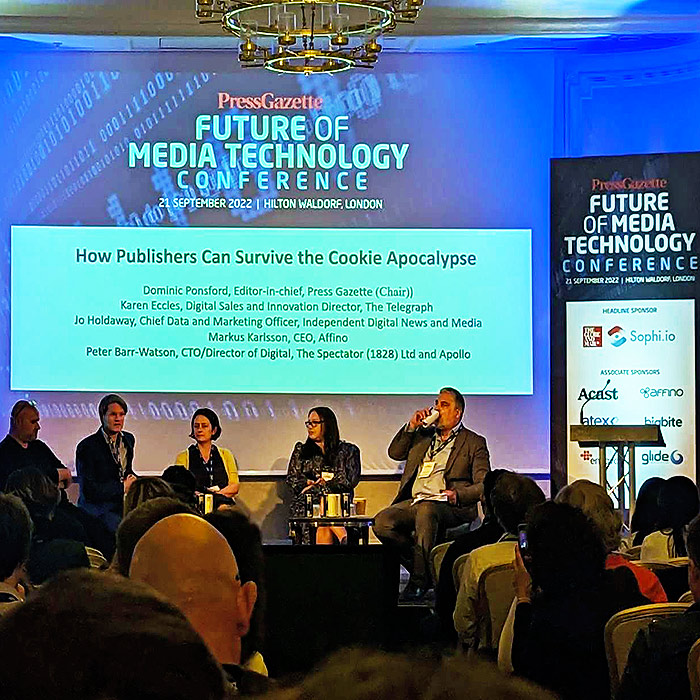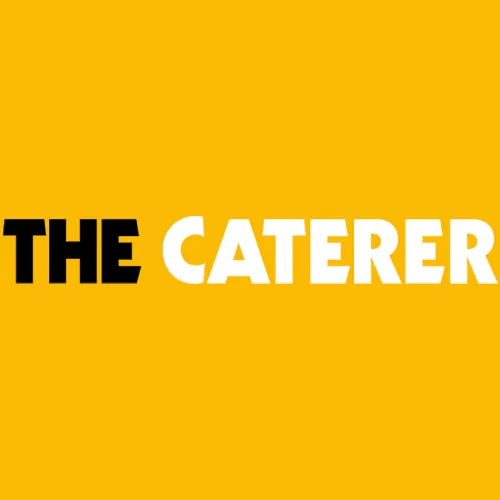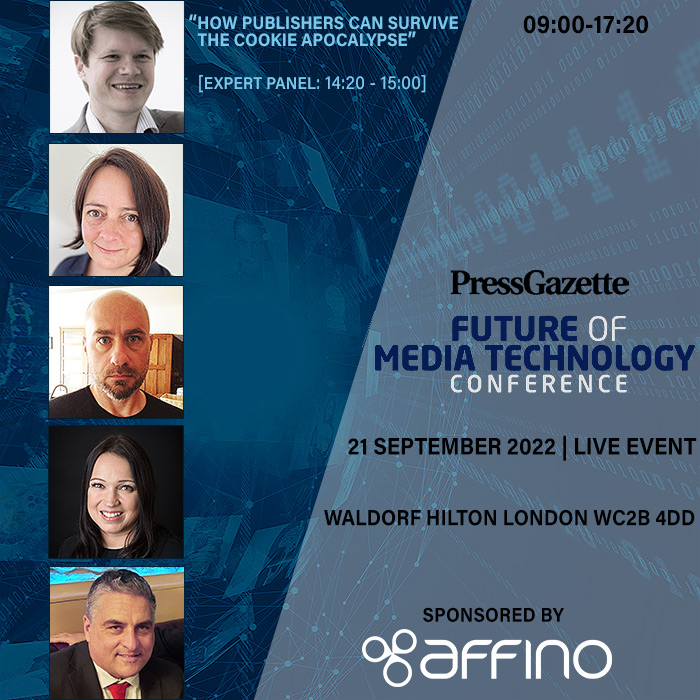5 Key Tips & Takeaways from the recent Future of Media Technology Conference

Affino once more participated in style at PressGazette’s recent The Future of Media Technology Conference - where our CEO Markus led an Expert Panel on how Publishers could best survive the forthcoming ’Cookie Apocalypse’.
This article is based on the similar feature by Andrew Strutt over at ResponseSource - here as an Affino take on those key talking points :
‘Companies are starting to take ownership of their own data’ – Markus Karlsson, CEO of Affino
In the wake of Google announcing (yet again) that Third Party Cookies are definitely coming to an end, along with Apple’s cookie blocking, and GDPR’s increasing presence - all of which will continue to diminish the reach and capability of all manner of 3rd Party Cookie-based apps - not least Google's own Analytics and Ad suites.
So it becomes imperative on all Media businesses to invest in systems that can natively capture Zero and First Party Data, and deliver real-time Actionable Business Intelligence. Without these some companies are already suffering up to 90% data loss compared to just two years ago.
Businesses can no longer rely on third parties - if they want to capitalise on this new paradigm shift. They need to capture and wholly own their own data - and be able to instantly view and review key events via a core connected Audience CRM.
This is one of the most pressing things digital businesses need to be doing right now - while some are still alarmingly laissez-faire about all of this - you need to Carpe Diem! - before your business advantage is lost along with your critical data!
‘Quality, regulated, trusted journalism is the future’ – Rachel Corp, CEO of ITN
ITN's Rachel Corp in her keynote speech reflected somewhat anachronistically on the enduring power of simple Vox Pop Video Journalism - which was in evidence everywhere during the events leading up to and during our Queen's passing and funeral.
While this is obviously very much an unprecedented and once-in-a-lifetime event - so I personally am not convinced on the future longevity of the TV News Bulletin - for sure there is still a place for it - but nowadays I feel people are much more likely to reach for social news media - as they want to know what's happening right now within their own social and lifestyle bubbles - while a lot of News TV Bulletins are highly curated, 'polished' and after the facts so to speak - and often not specific enough for the majority of the audience.
Rachel provided some keen insight into independent television news, and the news surrounding the Royal Funeral and related activities. When it comes to independent television news, there is a great deal of shared resource, with only one camera person attending most events but the footage shared equally. When it comes to scoops though, the scooping party is always given precedence and space to break the news stories, e.g. party gate and being inside the Capitol invasion.
What was really interesting was the coverage around the Royal Funeral. It was agreed very broadly in the news community, right across the spectrum that the funeral would in effect act as a promotion for eyewitness news, and television based news in particular. All the television news organisations (at least the UK based ones) got together to agree that it would be a positive news experience, which in effect would act as a promotion for television news.
This is because there is considerable concern that with so much relentless bad news these days (and for some time now in the UK) up to 15% of the audience has completely disconnected from the news and up to 60% of the population avoids news at some point most days.
Overall Rachel was both a great and passionate advocate for independent news and came across very eloquently.
‘Media brands are loved by people and they want to be part of that with branded products’ – Alex Wood, Managing Director, Europe at Forbes
Forbes' Alex Woods focused on how the group's revenues had grown 40% in the past year - partly due to affiliates, but supposedly also due to increased merchandising opportunities with branded products. Juan Delgado CEO of Footballco provided further evidence through that business's success with Mundial branded socks.
A lot of media brands have loyal followings - so branded merchandising can work in a similar ways for them as for a football club - not necessarily to the same extent, but certainly there will be degrees of parity. While the branded goods have to be pertinent to the brand values and context of the media brand in question - you can never just stick your logo on everything and everything - it has to be relevant and salient to what you do!
A key takeaway is also that retail has far tighter margins than news products (subscriptions, ads and memberships), so getting the product mix right is key to earning revenues and can take a fair amount of experimentation.
‘Young people are less interested in “narrow news” subjects’ – Nic Newman, lead author of the Reuters Institute Digital News Report
Reuters' Nic Newman bemoaned the growing 'news-avoidance' of the populace in general - where it used to be that circa 27% of the population avoided all and any new bulletins - while the current figure is around 46% - and particularly prevalent among the younger generations. Who've kind of had their fill of endless doom and gloom and ignorant and amoral politicking.
They are far more concerned with broader cultural and lifestyle issues. In fact I would probably put myself in a similar category. I watch very little direct news any more - where most of my 'news input' tends to come from social commentary.
When times are particularly tough I can tend to avoid all news altogether as the world can seem a very grim place at times - and we the people need to be inspired and uplifted rather than constantly battered and down-trodden! News Media obviously need to switch up to a more hopeful and inspirational news delivery - if they wish to recapture some of that lost audience!
Markus Karlsson (our CEO) is very different and tunes into all forms of current affairs news to get the best feel for upcoming developments, whether they be the continued relative decline of the UK since Brexit, the reversal of fortunes of Putin’s Russia, the high risk of major ecological and climate related events, or the knife edge property markets in China and the USA.
‘Use the robots to do the routine reporting’ – Cecilia Campbell, Chief Marketing Officer at United Robots
There's no surprise that United Robots' Cecilia Campbell is advocating that Media businesses hand over routine reporting to AI and Robots. While we at Affino have been making some inroads of our own into more citizen-enabled journalism - in allowing members of the public to contribute news direct. It of course needs to be reviewed, sense-checked, tagged-up and segmented - which we see still requires some sort of human editorial intervention, and further refinements in AI and machine learning, especially for B2B and expert-led content.
While for sure you can offload some of the more routine and repetitive tasks onto automation / AI / robotic processes! I'm not sure Robots are yet fully up to the job of properly reviewed and curated news reporting - I foresee some interesting results along the way! They do though offer up efficiencies along the way and likely will be more transformative over time.

Did you find this content useful?
Thank you for your input
Thank you for your feedback
Upcoming and Former Events
Affino Innovation Briefing 2024
Webinar - Introduction to Affino's Expert AI Solutions - Session #2
Webinar - Introduction to Affino's Expert AI Solutions - Session #1
PPA Independent Publisher Conference and Awards 2023
Driving business at some of the world's most forward thinking companies
Meetings:
Google Meet and Zoom
Venue:
Soho House, Soho Works +
Registered Office:
55 Bathurst Mews
London, UK
W2 2SB
© Affino 2025


















